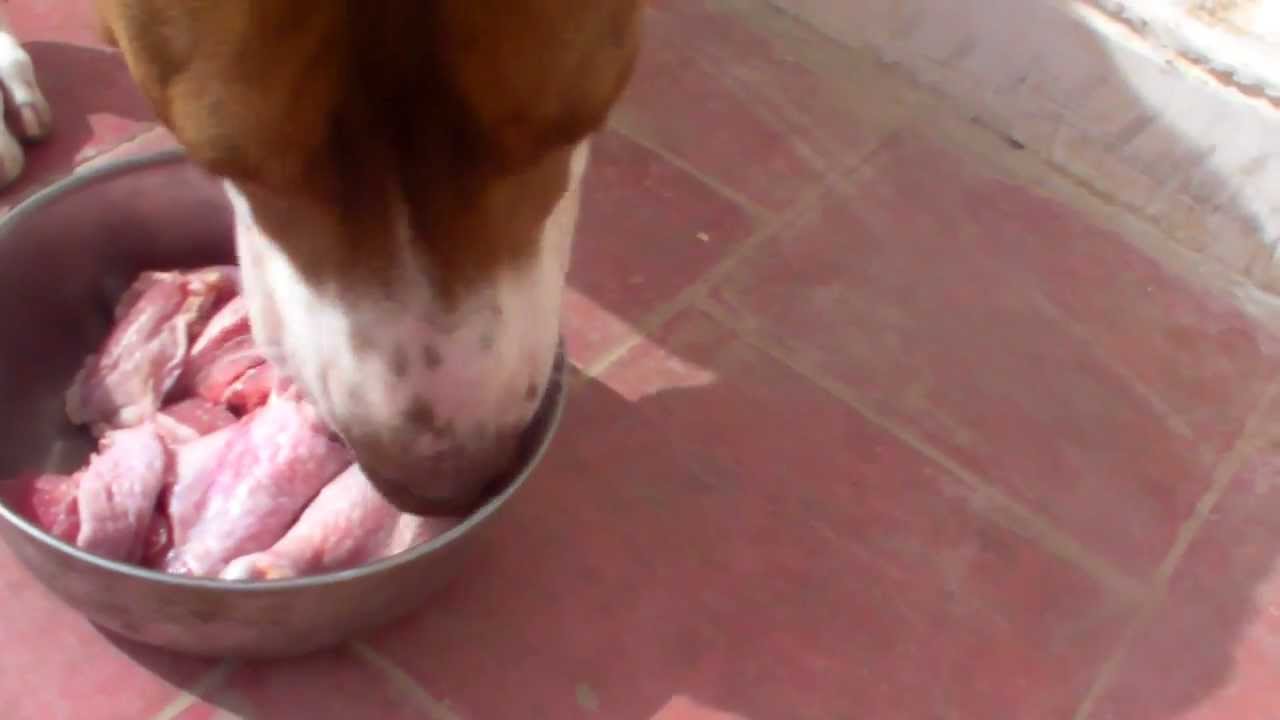Our Sudbury Vets Discuss Raw Food Diets
Many people are focusing on finding ways to incorporate a healthier diet for their furry friends. Like our own diets, people are starting to realize that it does matter what you feed your pet. The new and expanding movement in dog/cat food now seems to focus on the raw food diet. Pet stores are now starting to carry raw food kibble diets, as well as frozen raw food diets.
The raw food diet is based on the concept that dogs and cats are strictly carnivores like a wolf or a lion, who hunt, kill and eat raw meat and bones. We all want our furry family members to be as healthy as possible but is the raw food diet really a healthy choice??? Please keep reading for some helpful insight.
A dog is not a wolf and a cat is not a lion. Although a Husky may resemble a wolf and your cat may be as vicious as a lion at times (trust us we see this often at our clinic!), they are not the same. Evolution is something that cannot be ignored. For example, a two pound Chihuahua or a flat nosed Persian cannot eat the same diet as a wolf or a lion. There have been numerous dogs and cats that have been hospitalized for surgery or have had to be euthanized because they ingested bones. Please follow the link to our previous blog article on why feeding bones is not a good idea
https://www.barrydowneanimalhospital.com/2013/08/23/the-bare-bone-facts/
Evolution and domestication have altered the nutritional requirements of our pets and most raw food diets are not nutritionally balanced. Often these diets have too much or not enough calcium, phosphorus, zinc, magnesium or iron which can result in bone disorders. Many of these raw food diets also fall short in meeting the nutritional requirements for proper growth and reproduction. Even if your breeder recommends these diets, we advise speaking to your veterinarian before making any decisions. Some dogs, especially large breed dogs, can be predisposed to certain bone disorders like hip dysplasia or cruciate ligament injuries. Therefore, if they do not have the proper requirements for growth and maintenance they can be at more of a disadvantage. If you choose to feed a raw food diet, you need to make sure that it is nutritionally balanced and meets the requirements for every stage of your four legged friend’s life. This is extremely difficult to do on your own.
Let’s say that you do find a balanced raw food diet, there are still other aspects to take into serious consideration. Raw food diets can contain Salmonella or other pathogens which can cause serious illness or even death in immune compromised pets and humans. Also, we can be exposed to these pathogens while preparing a raw food diet. This can lead to possible contamination of everything your pet comes into contact with including your home, your yard, or even worse, your family members. When your pet eats raw meat you run the strong possibility of contaminating everything they lick. This is more worrisome in cats as they are notorious groomers!! Also, the litter box and your backyard become a breeding ground for Salmonella and many other dangerous bacteria such as E. Coli, Campylobacter, and the list goes on and on.
Many people believe that freezing the meat before feeding will kill all of the bacteria. Freezing the meat may reduce the amount of bacteria but it does not guarantee that it will kill all of it. If you are like most of us, you often enjoy a smooch from a furry friend, but before you do, you may want to ask if they feed raw food!! If a raw food diet is something you are considering, we want to make sure you take the proper precautions to ensure that you are decontaminating your dog or cat’s environment.
So why have people not considered a cooked food diet for their pets? The jump has seemed to go from canned food or kibble straight to a raw food diet. Is it because our lives are busy and cooking your pet’s food everyday can be time consuming?? Could it also be that we associate cooked food with the leftovers we give our pets that lead to obesity?? If you do not want to feed kibble but are unsure about a raw food diet, talk to your veterinarian about cooking a balanced diet at home. There are various ways that this can be accomplished!!
We hope that we have given you some food for thought and a lot of great info to chew on!! If you have any questions regarding your pet’s nutrition or diet please don’t hesitate to call us at 705-566-4243 or visit our website at www.barrydowneanimalhospital.com or our Facebook page at www.facebook.com/BarrydowneAnimalHospital

